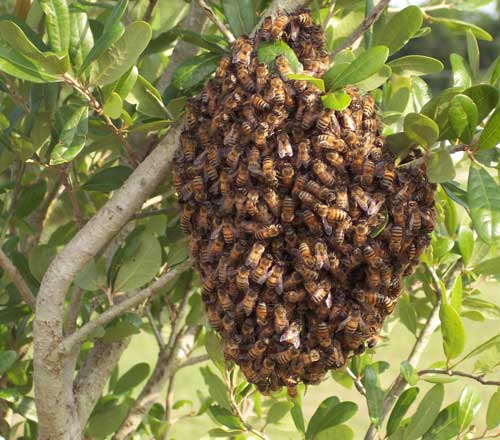Insights into Artificial Intelligence
Insects Offer Insights into Artificial Intelligence
 An amazing achievement in the entomological world is the complex operations of the ant colony and the complex coordination of bees as these tiny humble insects live, work and die as part of a greater society. I remember as a kid seeing the offers of buying ant farms and wondering how bees actually coordinated their lives.
An amazing achievement in the entomological world is the complex operations of the ant colony and the complex coordination of bees as these tiny humble insects live, work and die as part of a greater society. I remember as a kid seeing the offers of buying ant farms and wondering how bees actually coordinated their lives.
Research by scientists into ‘swarm intelligence’ provides some fresh thinking on how this class of problem solving works. The Economist reviewed the state of swarm research in this article.
Traveling Salesman Problem
The Economist writes about a particular problem of optimization where a salesman has to visit x cities with the shortest path. Computing power required to solve the problem grows very quickly with the more cities added. Ants have a similar problem – searching for food.
When ants find food, their pheromone trail attracts other ants that in turn leave pheromone trails. The strongest scents have the most available food and since the pheromones evaporate quickly, they naturally favor the shortest paths over the longer trails. This process amplify the intelligence of the individual.
Ant swarm software based on this insight have solved delivery routing problems and even repair scheduling for telcos and cableco operations. Another class of software called particle swarm optimization which is loosely based on the logic at the heart of how birds find food supplies. Birds fly randomly with an eye on other birds. The one stopping for food closest the nest attracts the attention of the others.
An interesting solution involves the specialized interactions between classes of cheap robots. The footbots take the handbots to the place identified by the eyebots, so the object of interest can be picked up and returned ‘home.’ each class of robots are less expensive than a single robot with each of seeing, handling and transport attributes. Coordination between the classes of robots is rudimentary and highly complimentary. Applications of this technique include surveillance and search and rescue.
Coordinating networks of plentiful, simple machines is exactly what the Internet does in the [[DNS]]. Millions of computers on the network are able to connect with any of the other computers using simple rules and sharing knowledge of a region of the Internet to get to where you need. The high quality of the [[wikipedia]] is possible when people coordinate their knowledge even though not everyone is an expert and no one is an expert on everything. Clearly, the collective intelligence shown by the wikipedia is amazing. Unlike Google’s search engine, there’s very limited topdown coordination in these two instances. I’m thinking that swarming technologies will flourish in the coming years to solve ever more complex problems and even solve a few problems particularly better than centralized computing and multifunction robots could.
Who knows? I suspect swarm technologies will be proven useful in law enforcement (remember the spidybots in Tom Cruise’s [[Minority Report (film)]]), defense, environmental cleanup and even power optimization. It’s possible that this technology could play a big role in getting our economy growing again (hopefully without any kind of a government stimulus).
This post has already been read 0 times!
Edit
